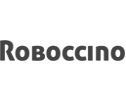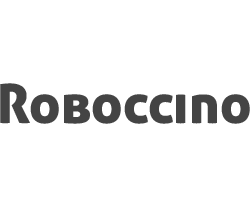Global Import Certifications for Coffee Machine Hire: A Comprehensive How-To Guide
The global coffee machine hire market has displayed amazing growth in recent times, with the increase in consumption of specialty coffee and the subsequent rise in café culture acting as catalysts. According to a report by Research and Markets, the global coffee machine rental market is predicted to be worth USD 3.5 billion by 2027, growing at a compound annual growth rate of 8.5% between 2020 and 2027. As more businesses come to appreciate the benefits of serving high-quality coffee while circumventing the initial costs of outfitting themselves with coffee equipment, hire services for coffee machines are fast becoming an integral part of the hospitality industry.
However, the maze of import certification for coffee machine hire on a global scale can be tricky. The many obstacles put up by numerous regulations of various countries will make it harder for any business to stay compliant, all the while enforcing quality control processes. As noted in an extensive report from Statista, 65% of coffee consumers prefer those outlets that boast offering products that are both of good quality and sustainable. Keeping abreast of relevant certifications will therefore ensure that your business meets all state regulations but more importantly earns you a good name, hence attracting more customers. This guide will provide a good background and equip you with the understanding of necessary certifications that will allow your coffee machine hire business to exist in this competitive market.

Understanding Global Import Certifications for Coffee Machines
The Global Certification of Importation for Coffee Machines Important for every new entrant in the coffee machine hire business is understanding licensing and certification for the importation of the machines globally. Commercial coffee machines must meet international general standards for safety, efficiency, and other local regulations. With each region having its own requirements-from electrical safety to environmental treaties-businesses must understand these certifications before importing. The CE Mark is one of the better-known certifications, which indicates that a product complies with EU standards. Coffee machines intended for distribution in Europe must undergo a battery of stringent tests to obtain this mark. Underwriters Laboratories (UL), based in the United States, supports the declaration on safety for consumer use. Each certification not only protects consumers but also enhances the credibility of the hiring company by assuring it is providing reliable and safe equipment. Many find import certification challenging, but it simplifies things when understanding its underlying concept. Any company wishing to extend its reach must be mindful of the difference in certification requirements from country to country. Companies that can find time to understand these certifications will spare themselves from incurring costs due to delays, fines, or recalls, winning them an opportunity to prosper globally in the competitive coffee machine hire industry.

Key Import Regulations and Compliance Standards for Coffee Machines
When discussing the global coffee machine hire market, it quickly becomes evident that understanding the key import regulations and compliance standards is critical. The coffee machine rental industry has increased in size due to the rising demand for fresh-brewed coffee by consumers, demonstrating an approximate value of $450 million in the U.S. market alone, according to IBISWorld. For the business that wants to think about importing beyond its borders, the application of import certifications becomes a serious challenge.
The International Electrotechnical Commission (IEC) standards are one of the important compliance standards that importers should observe. They are a set of safety requirements concerning electrical appliances, including coffee machines. Obviously, these standards help in protecting the consumers, but they enhance the credence of the product in overseas markets. Reports suggest that companies with such compliance standards usually enjoy a 20% increase in customer trust and satisfaction.
Apart from that, the EU has a different set of regulations, starting with the CE marking, which is assurance of conformity to health, safety, and environmental protection standards. A study by the European Commission has highlighted that compliance with those regulations is paramount to gain access to the EU market, while the consequences of non-compliance could be rather expensive penalties and product recalls. With the global coffee machine rental market projected to grow to 7% growth annually over the next five years, never has it been more important to be compliant with these import regulations for businesses looking to explore this burgeoning market.

Steps to Obtain Necessary Certifications for Coffee Machine Imports
The importation of coffee machines must proceed along the path of obtaining global certifications, which is necessary for compliance and prosperity in the candidate market. The process can be cumbersome, but an understanding of the steps is going to make entering the market easier. The Swiss Coffee Promotion Association asserts that Switzerland alone imports around 186,000 tons of unroasted coffee beans per annum, most of which are processed locally. Thus, imported coffee-making machinery should comply with rigorous good standards relating to safety and quality.
The first step in setting off on the certification journey is knowing what requirements have been specified by the target market. Each country has its own regulations for imported goods, including safety, efficiency, and emissions certifications. EU regulations provide that such imports must conform to standards such as CE marking and ISO certificates to show credibility and commitment to the product quality.
Identifying the appropriate certification authorities will then follow. This step usually requires the submission of comprehensive documentation on the coffee machines, including technical specifications and manufacturing processes. Testing may be required to show compliance with safety and performance requirements. Good due diligence practices in terms of selecting reliable suppliers and partners can limit risk associated with the non-compliance.
The worldwide coffee market has been valued at nearly $800 billion, further indicating the profitability of companies wanting to get into the market. Considering that coffee consumption continues to rise at an annual rate of 20% across regions, their demand will keep growing for certified coffee machines. Companies that proactively seek and acquire the required certifications have an upper hand in the thriving marketplace and are thus able to accommodate changing tastes of their consumers.

Common Challenges in Import Certification and How to Overcome Them
The world of global import certifications is truly peculiar for hire businesses with coffee machines and poses a number of challenges. Probably one of the most common problems is the incompatibility of regulations from one country to another. After all, every region has its own standards and compliance requirements that coffee machines legally have to satisfy for importation. Thus, companies could find themselves somewhat understandably confused and their hire processes interrupted. To address this, it will be imperative to carry out ample research into regulations governing a particular market. Those companies may find the task easier with the help of local experts or industry consultants.
Another challenge in the same vein in the import certification procedure is that of documentation. Import certification processes usually come with stacks of documentation requirements, including safety compliance certificates, environmental clearances, and proof of quality assurance. The absence of any document required by the custom authority may result in delays and penalties. Businesses can escape or at least minimize these risks by drawing up their own checklist of required documents well in advance and ensuring that all documentation is filled in and filed correctly. Having an electronic backup copy of any document will further ease the locating and retrieval of information as needed so as to help expedite import certification.
Above all lies the difficulties companies face in communicating with foreign authorities, which include a plethora of impediments, especially language barriers. All these hindrances can easily induce misunderstandings or miscommunication, which lead to inaccurate submissions that delay the certification process. The solution to this could lie in hiring a bilingual compliance officer or using translation services to avoid communication gaps with the regulatory bodies. By tackling these frequent challenges, businesses will be able to successfully navigate import certification complications for the smooth hire of coffee machines.
Best Practices for Maintaining Compliance After Importing Coffee Machines
The boom in mobile coffee shops and kiosks has been a popular trend and lifestyle changes with increased outdoor activities are fueling its growth. Given that there are trends where any entrepreneur could make about 5000 RMB a day selling coffee through mobile setups, it would be important for coffee machine hire companies to understand the regulation imposed post-importation for compliance. Compliance measures will incorporate certain best practices that will ensure legal adherence and operational efficiency.
First and foremost, it is important to understand local import certifications. Each territory has its specification as to what extent it would require health certifications, inspection of goods, etc., relative to consumer protection laws. Regular audits and documentation are very important for complying. Businesses should have a systematized method of record-keeping for documents that involve import certificates, servicing logs, and compliance checklists.
Beyond that, staff training goes a long way. Staff should receive in-depth training regarding the operational guidelines and safety considerations of using coffee machinery. Industry studies show that companies offering training see a 25% reduction in compliance problems. Working with industry regulatory groups will help keep the business appraised of new regulations while also developing relationships that can facilitate overcoming complications of compliance.
In conclusion, there is a growing need for a solid approach toward compliance in this more mobile coffee business, given the rapidly changing cycle of the market. In best practices, coffee machine hire firms can rightly be positioned in a fast-growing market.

